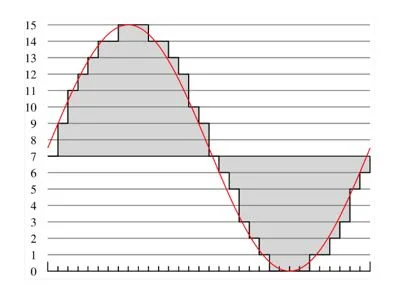Questions to Ask Before Hiring a Garage Door Repair Technician in California
Are You Licensed and Insured in California?
Overview of Licensing Requirements
In California, garage door repair technicians must comply with state contractor licensing laws. Specifically, if the project’s total cost (labor and materials combined) is $500 or more, the technician must hold a valid California State Contractor’s License issued by the Contractors State License Board (CSLB). This licensing ensures the individual or company has met the state’s requirements for knowledge, experience, and financial responsibility. You can verify a license online through the CSLB’s official website, which provides details on the license status, classification, and any disciplinary actions.
Importance of Liability Insurance and Workers’ Compensation Coverage
Even skilled technicians can encounter accidents, especially when working with heavy garage doors and high-tension springs. Liability insurance protects your property if damage occurs during the garage door repair, while workers’ compensation covers the technician’s medical costs if they are injured on the job. Without these protections, you as the homeowner could be held responsible for damages or injuries that happen on your property.
How Proper Credentials Protect Homeowners from Legal and Financial Risks
Hiring a licensed and insured technician isn’t just about compliance—it’s about protection. A licensed contractor is bound by California’s consumer protection laws, meaning you have legal recourse if the work is substandard or incomplete. Insurance coverage ensures you won’t face out-of-pocket expenses from accidents, property damage, or injuries. Ultimately, these credentials give you peace of mind, knowing the repair is being handled professionally and responsibly.
How Much Experience Do You Have With My Specific Garage Door Type?
Differences in Repair Needs for Steel, Wood, Aluminum, and Composite Doors
Not all garage doors are created equal—each material has unique maintenance requirements and repair challenges. Steel doors are durable but may require rust treatment and dent repair. Wood doors often need adjustments due to warping, rot prevention, and refinishing to withstand California’s varying climates, from coastal humidity to inland heat. Aluminum doors are lightweight but can bend easily, requiring precise alignment fixes. Composite doors combine materials for durability but may involve specialized hardware or panel replacements. A technician familiar with your door’s material will know the right tools, repair methods, and protective treatments to ensure long-lasting results.
Importance of Experience With Specific Brands and Opener Systems
Garage door brands—such as Clopay, Amarr, Wayne Dalton, and CHI—can have proprietary hardware, track systems, or panel designs. Likewise, opener systems vary greatly between models from LiftMaster, Genie, Chamberlain, and others. A technician who has hands-on experience with your specific brand and opener type will troubleshoot faster, source compatible replacement parts, and avoid unnecessary modifications that could void warranties.
How Specialized Knowledge Improves Repair Quality and Efficiency
Specialized knowledge translates to more accurate diagnoses, fewer callbacks, and faster repair times. An experienced technician knows the common failure points for each door and opener type, the signs of deeper mechanical issues, and the adjustments that improve performance and extend lifespan.
Can You Provide a Written Estimate Before Work Begins?
Why Verbal Quotes Can Lead to Unexpected Charges
While a quick verbal quote over the phone might seem convenient, it leaves too much room for miscommunication and unexpected costs. Without a written estimate, a technician could increase the price once work has started, citing “unforeseen issues” or adding charges you didn’t agree to. In California, reputable garage door repair companies follow consumer protection laws that promote transparency, which means providing clear, upfront pricing before any work begins.
What Should Be Included in a Detailed Written Estimate
A proper written estimate should clearly break down:
- Labor Costs – Hourly rates or flat fees for the repair work.
- Parts and Materials – Specific components being replaced, such as springs, cables, rollers, or opener parts, with their individual prices.
- Additional Fees – Service call charges, travel fees, disposal fees for old parts, or emergency after-hours rates.
- Warranties – Coverage details for both parts and labor, including how long the warranty lasts and what it excludes.
Having this information in writing allows you to compare bids from different technicians and prevents surprises when the final bill arrives.
Red Flags if a Technician Refuses to Provide Written Pricing
If a garage door repair technician in California avoids giving you a written estimate, it’s a major warning sign. This could indicate a lack of professionalism, an attempt to overcharge later, or even an absence of proper licensing. Licensed contractors typically have no problem putting their prices in writing because it shows they stand by their work and pricing.
What Is Your Warranty Policy for Parts and Labor?
Difference between Manufacturer Warranties and Service Guarantees
When hiring a garage door repair technician in California, it’s important to understand the two types of protection you might receive. Manufacturer warranties cover defects in parts—such as springs, rollers, or opener motors—provided by the product’s maker. Service guarantees (or workmanship warranties) are offered by the technician or repair company to ensure the installation or repair work is done correctly. While manufacturer warranties protect against faulty materials, service guarantees safeguard you from errors made during the repair process.
Why Longer Warranties Often Indicate Higher-Quality Parts and Workmanship
A technician willing to offer a longer warranty is often more confident in the quality of both their materials and their work. High-grade garage door springs, for example, can last far longer than cheaper alternatives, and premium opener systems often come with multi-year warranties. In California, where climate conditions—from coastal salt air to desert heat—can impact materials, choosing a technician who offers durable parts and stands behind them with an extended guarantee can save you from future repair costs.
Importance of Getting Warranty Terms in Writing
Verbal promises are easily forgotten or disputed. Always ask for a written warranty that clearly outlines the length of coverage, what is included, and any exclusions (such as damage caused by misuse or lack of maintenance). This documentation should also specify whether labor is covered for follow-up repairs. Having warranty terms in writing not only protects you legally but also ensures there is no confusion about your rights if issues arise later.
Do You Offer Emergency or Same-Day Service?
When Fast Response Is Crucial
Some garage door problems can’t wait. A broken torsion spring can make your door inoperable, leaving your vehicle trapped inside. A stuck or partially open door can be a security risk, exposing your home to theft. In California, where many homeowners rely on garage doors as their primary entry point, timely service is essential. Emergency or same-day repairs help restore safety, accessibility, and peace of mind without prolonged inconvenience.
Additional Costs Associated With Emergency Service
While emergency response is invaluable, it often comes with higher costs. Technicians may charge after-hours, weekend, or holiday rates, and fees can also vary depending on travel distance, the complexity of the repair, and the availability of parts. It’s best to ask about these rates upfront, so you know exactly what to expect if urgent service becomes necessary.
How to Confirm Availability for Urgent Repairs in California
Before committing to a technician, ask about their coverage area, service hours, and average response time for emergency calls. Reputable California garage door repair companies often advertise 24/7 service and have a dedicated phone line for urgent requests. You can also check customer reviews to see if they consistently respond quickly in emergencies.
Can You Provide References or Customer Reviews?
Value of Checking Verified Reviews on Google, Yelp, and BBB
Before hiring a garage door repair technician in California, it’s wise to check their reputation through verified sources. Google Reviews often provide recent customer feedback with star ratings, while Yelp can offer more detailed, story-style accounts of customer experiences. The Better Business Bureau (BBB) adds another layer of trust by showing a company’s rating, accreditation status, and any history of complaints. Looking at these platforms gives you a clearer, more credible picture of how the business operates.
Why Past Customer Feedback Helps Evaluate Reliability and Professionalism
Hearing from past customers provides insights that credentials alone can’t reveal. Reviews can tell you whether the technician arrived on time, explained repairs clearly, charged a fair price, and left the work area clean. In California’s competitive service industry, technicians who consistently earn high praise usually maintain strong customer service standards to keep their reputation intact.
How to Spot Patterns in Reviews That Indicate Consistent Service Quality
One or two bad reviews aren’t necessarily a red flag, but consistent complaints about the same issues—such as missed appointments, hidden fees, or poor workmanship—should raise concerns. On the other hand, repeated mentions of punctuality, professionalism, and quality repairs signal that the technician is dependable. Look for patterns over months or years, as this shows whether the technician maintains their standards over time, not just for a few jobs.
What Brands and Parts Do You Use?
OEM vs. Aftermarket Parts and How They Affect Longevity
When hiring a garage door repair technician, it’s important to ask whether they use Original Equipment Manufacturer (OEM) parts or aftermarket alternatives. OEM parts are designed specifically for your garage door brand, ensuring a precise fit and maintaining manufacturer warranties. While aftermarket parts can be cheaper, they may not meet the same quality or durability standards, which could lead to more frequent repairs over time.
Importance of Using High-Quality Components for California’s Climate Conditions
California’s diverse climate—from salty ocean air along the coast to dry desert heat inland—can take a toll on garage door materials and components. Springs, cables, and rollers exposed to coastal humidity may corrode faster, while extreme heat can warp or weaken certain parts.
How Brand Familiarity Can Speed Up Repairs
A technician who regularly works with major brands such as Clopay, Amarr, Wayne Dalton, or CHI will be familiar with their parts, mechanisms, and common failure points. This knowledge allows for faster troubleshooting, more accurate part sourcing, and fewer delays waiting for special orders. In many cases, brand familiarity means the technician can complete the repair in a single visit, saving you both time and money.




